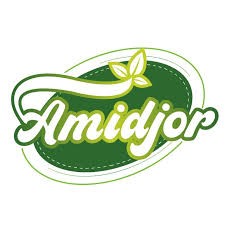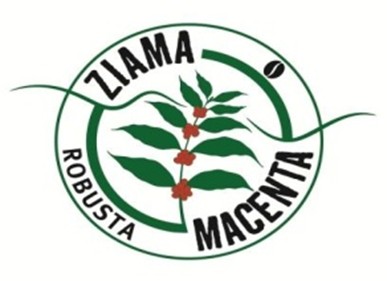Amidjor is a company specialized in agri-food production, processing, and training.

Noël N’Guessan is the co-founder and technical director of LONO, a company established in 2016 with Louise Bijleveld. Noël graduated from the University of Stellenbosch, South Africa with a degree in Chemical Engineering. He continued with a Master of Science in Environmental Sanitation, specialising in biological wastewater treatment, from Ghent University in Belgium. After initial professional experiences, in 2016 he co-founded both LONO and Smart-T Côte d’Ivoire, a company specialising in the publishing and distribution of management software. He was Smart-T’s head of business development until January 2020, and is still a member of the board of directors.
Type: Limited Liability Company
Year of Founding: 2016
Number of Employees: 11
CEO: Noël N’Guessan
Business Model
LONO wants every country and every community to benefit from innovations in the biological transformation of biomass. Its mission is to offer a range of accessible and sustainable solutions for the valorisation of organic matter rejected by the agricultural and agri-food sectors. The objective is to increase value creation in rural areas, particularly in agricultural production, while generating energy, fighting poverty in rural areas of Côte d’Ivoire, and preserving the environment.
The processing of residual biomass contributes directly and sustainably to improving the living conditions of farmers, who represent almost half of the active population in Côte d’Ivoire.
LONO’s project began in 2015, when Louise Bijleveld, a sociologist, identified that a problem faced by people in rural areas of Côte d’Ivoire was access to an accessible source of fertiliser that corresponded to the needs of the soil and crops in each locality. So LONO started to design and produce waste fermentation equipment in several areas, accessible to all farmers through their cooperative societies. Since its launch, the company has developed two products that small-scale farmers can use to recycle the nutrients and organic matter contained in their organic waste directly into their soils.
LONO aims to enable producers to treat the organic waste from Côte d’Ivoire’s plantations themselves, estimated at between 15 and 17 million tons per year.
LONO is one of the few companies offering innovations for producing organic fertiliser in Africa.
LONO has installed waste fermentation units in several locations in Côte d’Ivoire.
The company operates mainly in Côte d’Ivoire and aims to expand to Mali, Ghana and Benin, as well as Liberia in the longer term.
Strong Relationships with Smallholders
The company works directly with producer cooperatives and major value chain organisations to integrate its sustainability strategies. For example, LONO works with the oil palm inter-professional organisation working on compliance with the Roundtable on Sustainable Palm Oil (RSPO) requirements; and with Ecocert for cocoa and fruit production.
Ninety farmers currently benefit from composting or anaerobic digestion equipment. 80% are men farming between 3 and 10 hectares of mango, cocoa and oil palm. The average age of the users is 40 years, although this average varies according to the sector.
Products and Markets
The main product offered by LONO is the Kubeko, which is available in two versions:
– Kubeko Composter: A locally prefabricated composter in Côte d’Ivoire that optimises aeration and humidity to produce compost from organic waste in 30 days, instead of the 6–12 months required naturally.
The composter is automatically fed and aerated for 15 days, and can be powered by an energy or solar grid. About 400 kg of organic waste produces 150 kg of compost every month.
– Kubeko Biogas: A locally prefabricated biodigester in Côte d’Ivoire that produces cooking gas from the wastewater of cassava processing, palm seed, green kitchen waste and animal manure. About 10 kg of solid waste provide 3–5 hours of cooking gas and 50 litres of liquid compost every day.
The repayment period for both Kubeko models is 2 years. About 55 are currently in use. The equipment is robust and can be used in rural and urban areas. LONO trains users of the composters and biodigesters to maximise the use of the fertiliser produced. The company also carries out the necessary soil analyses to advise on the dosages required to improve soil fertility.
LONO is also developing industrial projects for the production of organic fertilisers and biopesticides to improve soil quality, yields and plant resilience.
The company plans to certify its biofertiliser production, as well as its training and demonstration plantations for compost and biofertiliser from anaerobic digestion, according to the requirements of the Ecocert label.
Main Services
In its mission to accelerate the adoption of cost-effective organic waste technologies, the company offers strategic partnerships to cooperative companies, agro-industrial plants and others active in sustainable agricultural production, offering agronomic advice adapted to the use of biofertilisers and compost.
In addition, LONO conducts studies for government organisations and NGOs to assist them in designing policies for the cost-effective production of bioenergy and biofertilisers from agricultural and urban biomass deposits.
LONO also facilitates the development of partnerships between waste producers, investors and users of compost, energy or green chemicals. These partnerships contribute to the realisation of sustainable and profitable projects by going beyond a single company or client.
Innovations: Milestones and Expansion Plans
LONO started in 2016 with the production of vegetable products in Koun-Fao, in order to generate finance to support its market research on the biomass management and valorisation needs of the agricultural sector.
Subsequently, the company developed its first prototype of the Kubeko composter, and started commercialisation through a first pilot project with the Mé Regional Council and the NGO Nitidae in 2018. In the same year, the company received awards from several private and public organisations for innovative aspects of the Kubeko product.
Since 2019, the marketing of Kubeko has grown, and the first strategic partnerships and consultancy services to supply chains have started.
Although the year 2020 was largely dominated by the COVID-19 pandemic, LONO obtained its first patent for the Kubeko and received a grant from the Competitive Fund for Sustainable Agricultural Innovation (CFSAL) to demonstrate the Kubeko innovation in the oil palm sector. The technical team has grown to six members with skills in agronomy, soil science, project management and capacity building.
LONO has also been invited to join a consortium of industrial and rural development companies to set up a structuring project for biofuel production.
In 2021, the company returned to growth and received a grant from the Netherlands to set up a plant in the city of Yamoussoukro to produce biofertilisers from agro-industrial waste and the organic fraction of municipal waste.
A Kubeko composter costs between €750 and €915, which is still too expensive for an individual farmer. The composters are currently sold to cooperatives with funding from development agencies or certification programmes. LONO wants to lower the cost of the Kubeko by increasing the quantities produced and improving the raw material supply chain.
By 2022, LONO plans to open its first organic fertiliser manufacturing plant in Yamoussoukro, with a production capacity of 5,000 tonnes of solid fertiliser and 5,000 tonnes of liquid fertiliser. This production will produce fertiliser for 7,000 ha of crops, and part of the plant will produce biogas to cover its energy needs.
One of the raw materials for the plant will be water hyacinth, an invasive aquatic plant that threatens wildlife. The project has been subsidised by the Netherlands to the tune of €750,000.
Success Factors and Lessons Learned
Kubeko composters and biodigesters meet a demand for low-cost fertiliser products from farmers and the rural population of Côte d’Ivoire. The Kubeko compost is highly appreciated by mango producers in the Korhogo region, and LONO estimates that 6,000 Kubeko biogas units could be used in the cassava processing regions of Côte d’Ivoire.
LONO’s innovative offer has won numerous awards. In 2017, the company won the second prize in the EDF Pulse Africa competition, rewarded with €10,000 and personalised coaching. In the same year, LONO won the Rebuilding Futures Startup competition of the IGNITE conference organized by Spark, an NGO working to support young students and entrepreneurs with little support from local governments. In 2018, the company also won the Innovation Award at the 2018 edition of the Business Plan Competition (BPC) of the General Confederation of Businesses of Côte d’Ivoire (Confédération Générale des Entreprises de Côté d’Ivoire, CGECI). In 2019, LONO was named Start-up of the Year by Total Côte d’Ivoire; in 2020 the company came second in the African Development Bank’s AgriPitch competition, winning $20,000, and was selected for the IMPULSE accelerator sponsored by OCP Africa.
In July 2021, LONO won the Royal Academy of Engineering’s Africa 2021 Prize, worth £25,000, for the Kubeko innovation and its transformational potential for the African continent. Noël N’guessan is the second Ivorian to win this award, and the first to win it with an Ivorian innovation.
Additional Resources
Join our Forum to discuss and explore how to encourage innovations across agricultural value chains to transform food systems in African, Caribbean and Pacific countries and beyond, promote sustainable agriculture & leverage investments. Share insights, ask questions, and collaborate on innovative solutions for a greener future.
Recent Business Profiles

Amidjor is a company specialized in agri-food production, processing, and training.

ADECAM is a community-driven organisation in Guinea dedicated to protecting, promoting, and developing the Ziama-Macenta Geographical Indication coffee, while supporting smallholder producers...

Tac Maz Sustainable Ventures is a climate-smart social enterprise in Malawi supporting smallholder farmers through sustainable poultry and horticulture production.

Bono Salus is a Zimbabwean woman-led agribusiness specializing in urban hydroponic farming of microgreens.

The Nut Place is a Nigerian food innovation company that processes locally grown edible nuts into gluten-free, nutrient-dense products to improve nutrition, reduce post-harvest losses, and promote...